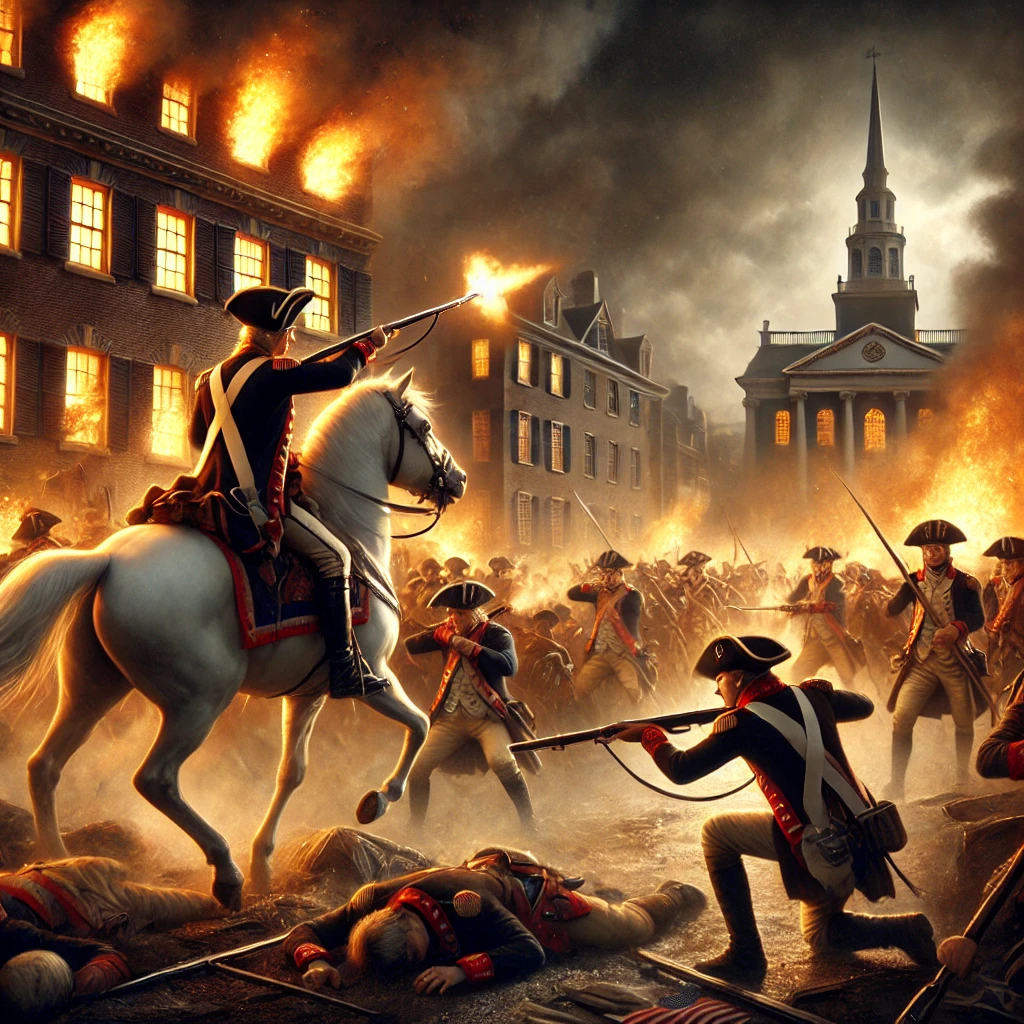On January 5th, 1781, British forces under the command of Benedict Arnold captured Richmond, Virginia, marking a significant event in the southern theater of the American Revolution. This was one of the key moments during the British strategy to quell the rebellion in the southern colonies. The capture of Richmond, which was both a political and strategic center for the American cause, highlighted the intensifying British efforts to suppress the revolution in the South and foreshadowed the larger military struggle to come.

Benedict Arnold’s Role in the Southern Campaign
Benedict Arnold, once a hero of the Continental Army, had defected to the British side in 1780, disillusioned with the American cause and seeking personal gain. His defection was a major blow to the morale of the Continental Army and to the American public. As a British general, Arnold was tasked with leading raids in the southern colonies, a key strategy for Britain to reassert control over the rebellious colonies.
In late 1780 and early 1781, Arnold’s forces moved through Virginia, raiding towns and destabilizing the region. On January 5th, 1781, Arnold’s troops entered Richmond, the capital of Virginia, and captured the city. At the time, Richmond was an important political and military hub for the Patriots, serving as the home of the Virginia state government. The capture of Richmond was symbolic of the British desire to crush the rebellion in the south and provided them with a temporary strategic advantage.

The Impact of Richmond’s Capture
While the British forces occupied Richmond, the American government and military leaders were quick to respond. Virginia’s governor, Thomas Jefferson, fled the city, and key documents and supplies were moved to safety, preventing the British from obtaining crucial resources. Despite Arnold’s victory in taking Richmond, the British were unable to hold the city for long. Arnold’s forces were hampered by logistical challenges and a lack of reinforcements, which made their position unsustainable.
The capture of Richmond was significant in that it marked the culmination of British efforts to gain control over Virginia, a crucial southern colony. However, it also highlighted the limits of British control and foreshadowed the eventual failure of their strategy in the South. Within months of Arnold’s raid, British forces would face the decisive defeat at Yorktown in October 1781, signaling the end of the war and the ultimate failure of the British to quell the American rebellion.
The Legacy of the Battle and Its Role in the American Revolution
The capture of Richmond by Benedict Arnold was a temporary victory for the British, but its lasting impact was minimal in the context of the broader war. The event reinforced the determination of the Continental Army and the American cause. Arnold’s betrayal and the subsequent capture of Richmond galvanized the American resistance and underscored the difficulty the British faced in attempting to regain control over the southern colonies.

Although Arnold’s raid temporarily disrupted the American efforts in Virginia, it did not change the course of the war. Just a few months after the British capture of Richmond, the Siege of Yorktown would lead to a decisive American victory, effectively ending British efforts to suppress the revolution. The events in Virginia, including Arnold’s raid, were part of the larger southern campaign that ultimately failed to defeat the American forces, with the Patriots gaining the support of French troops and securing victory at Yorktown.
The capture of Richmond by Benedict Arnold on January 5th, 1781, was a key moment in the American Revolution, marking a brief but significant episode in the southern theater of the war. Though the British were able to temporarily seize the city, their hold was fleeting, and the event ultimately served to bolster the resolve of the American forces. The failure of British strategies in the South, culminating in the American victory at Yorktown later that year, sealed the fate of the revolution and helped secure the United States’ independence. The capture of Richmond remains a reminder of the complex and pivotal battles that shaped the course of the American Revolution.
